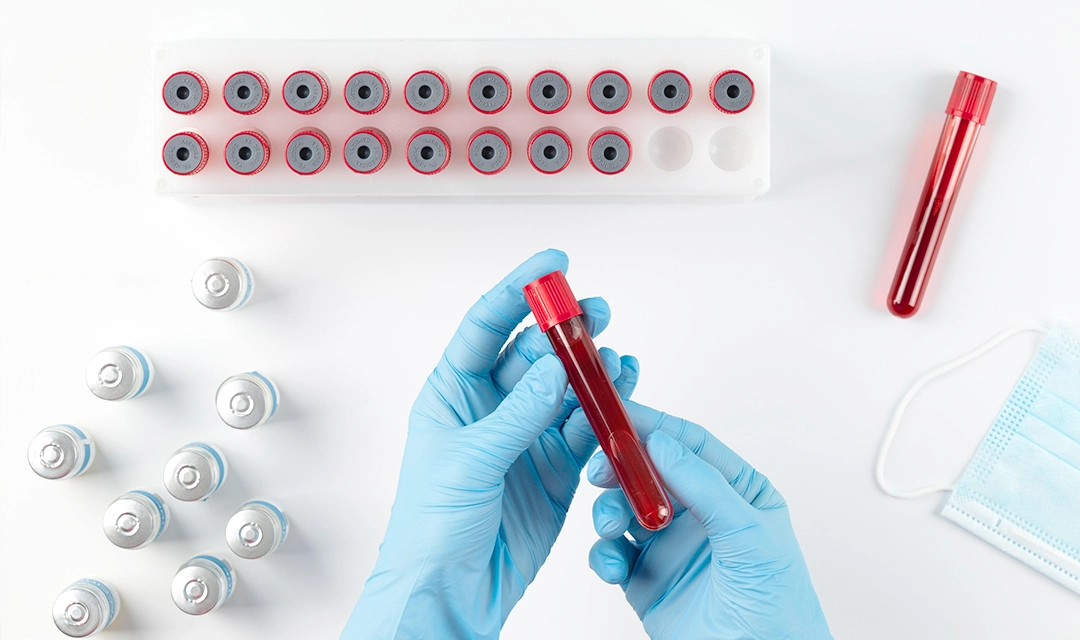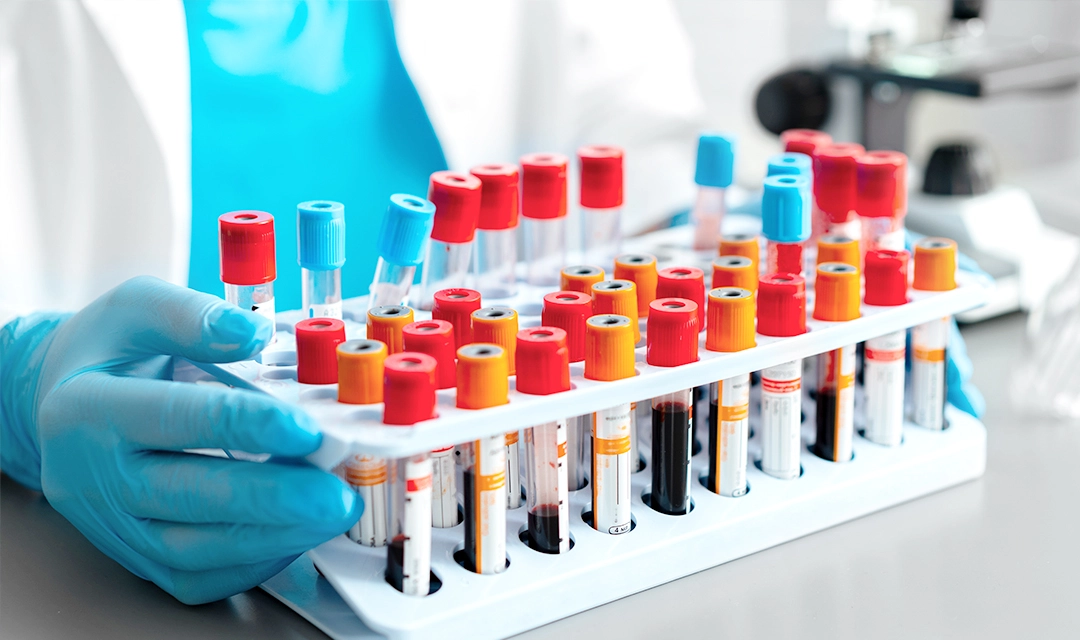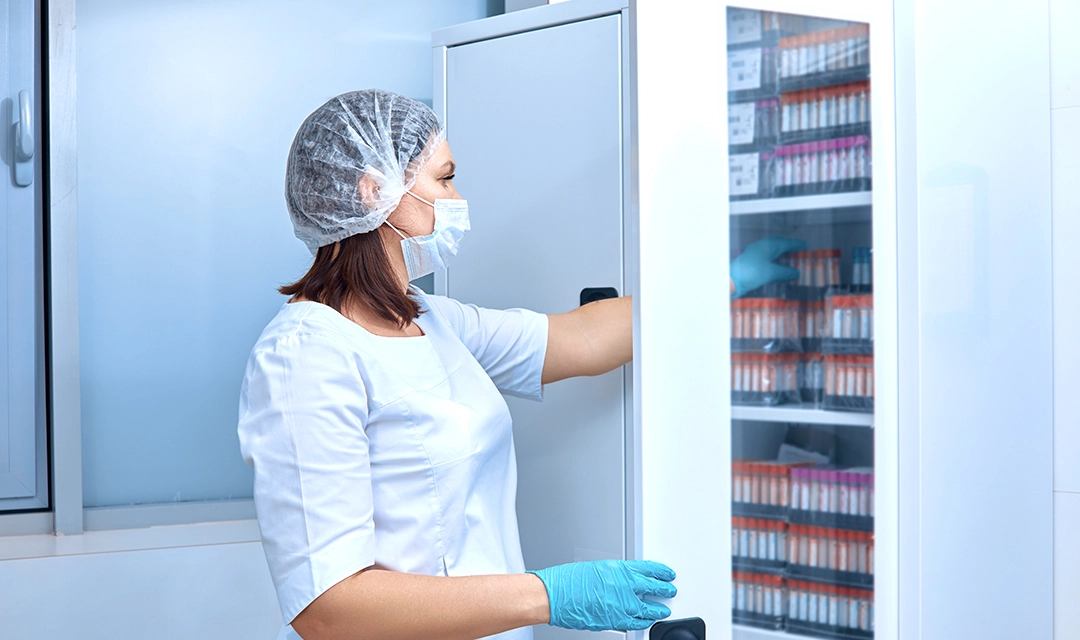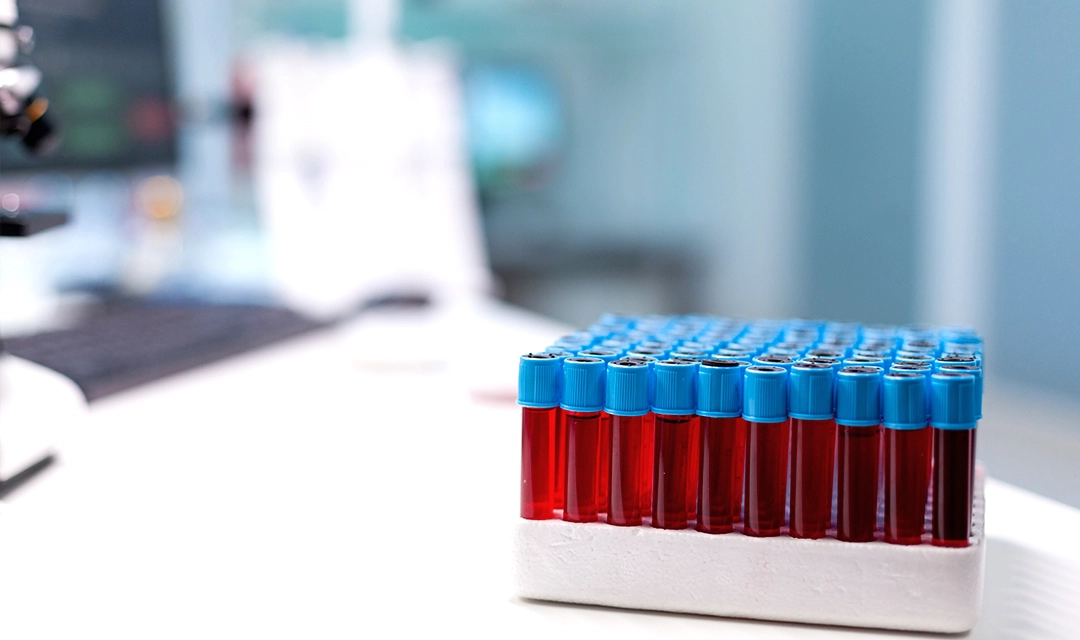- +1 (408)580-1396
- info@ibiospecimen.com
Biofluids
Human Biospecimens
Human Biofluids for Research
Access to a variety of blood and non-blood human biofluids from healthy and ill individuals, as well as those obtained utilizing hundreds of different analytes with associated test results, is made possible through ibiospecimen.
ibiospecimen simplifies procurement, from clinical residual to banked and prospectively obtained human biofluids. In order to assist you in locating the ideal specimen and data match for your study, including samples with difficult-to-find patient characteristics, we offer to give access to a varied, global network of providers.
What biofluids do you need for your research? Let us know how we can help.
What biofluids do you need for your research? Let us know how we can help.


Whole Blood
Whether you require 10 samples or tens of thousands, we can quickly source them. Following established standard operating procedures, whole blood is taken. Venous blood up to 500 mL is drawn into a collection bag or several kinds of tubes.


Serum & Plasma
Along with de-identified patient-level data, you can obtain serum and plasma samples from incredibly different and niche patient populations. Serum and plasma samples are processed and centrifuged as per your instructions before being supplied fresh or frozen.


Buffy Coats
Fresh or frozen human tissues are obtained from many healthy donors, cancer patients undergoing special treatment, or donors with specialized knowledge such as CT scans, serology, and disease definitions.


Swabbed Samples
Source almost any kind of swab. We can assist you in locating the precise specimen you require, including nasopharyngeal, buccal, ocular, ear, vaginal, and more from healthy persons to transplant patients and beyond. Give us your requirements, and we'll take care of the rest.


Urine
Collecting urine samples from healthy and diseased individuals can help identify diagnostic markers, disease progression, or treatment response. Urine samples can come from banked sources or be collected prospectively. Delivery methods may include fresh or frozen samples.

Finding the Right Human Biofluids for Your Research
ibiospecimen Marketplace is a fast, compliant, revolutionary one-stop access to millions of human biofluids and patients from a diverse network of providers
Disease Indications
Limitless Possibilities Where You Can Get Specific Human
If you want, we can have it. Our large and growing network of partners connects EMR data directly to the ibiospecimen Marketplace, enabling us to obtain biological samples with unique data for a wide variety of diseases reported for research. Below are some examples.
- Colorectal Disease
- Celiac Disease
- Inflammatory Bowel Disease (IBD)
- Irritable-Bowel Syndrome (IBS)
- Crohn’s Disease
- Ulcerative Colitis (UC)
- Polyps
- Pre-colonoscopy healthy controls
Hematologic malignancies
- B-cell Lymphoma
- Chronic Lymphocytic Leukemia CLL
- Leukemia
- Acute Myeloid Leukemia AML
- Lymphoma
- Mixed lineage leukemia MLL
- Non-Hodgkin’s Lymphoma
- Multiple Myeloma
- Myelodysplastic Syndrome MDS
Solid tumors
- Brain / Glioblastoma
- Breast Cancer
- Colorectal / Rectal Cancer
- Esophageal Cancer
- Head / Neck Cancer
- Bladder Cancer
- Kidney Cancer
- Prostate Cancer
- Lung Cancer
- Melanoma
- Liver Cancer
- Non-Small Cell Lung Cancer NSCLC
- Uterine Cancer
- Ovarian Cancer
- Pancreatic Cancer
- Small Cell Lung Cancer SCLC
- Alzheimer’s Disease
- Dementia
- Postpartum Depression
- Epilepsy and Seizures
- Major Depressive Disorder
- ADHD
- Multiple Sclerosis
- ADD
- Parkinson’s Disease
- Alcoholic Hepatitis
- Hepatitis B
- Alpha-1 Antitrypsin deficiency
- Bile duct cancer
- NAFLD
- Biliary atresia
- Cirrhosis
- Hemochromatosis
- Hepatitis C
- Alagille syndrome
- Liver transplant remnants
- Allergies (Seasonal)
- Ankylosing Spondylosis
- Thrombocytopenia
- Autoimmune Hepatitis
- Autoimmune Liver Disease
- Rheumatoid Arthritis (RA)
- Goodpastures
- Asthma
- Graves’ Disease
- Hashimoto’s Thyroiditis
- Allergic Rhinitis
- Plaque Psoriasis
- Systemic Lupus Erythematosus (SLE)
- Scleroderma
- Sjogrens Syndrome
- Systemic Sclerosis
- Chlamydia
- COVID-19 (SARS-CoV-2)
- Ebstein Barr Syndrome (EBV/Mononucleosis)
- Zeka
- Gonorrhea
- Hepatitis A
- Hepatitis B
- Hepatitis C
- Herpes
- HIV / AIDS
- Chagas
- HTLV
- Influenza
- Invasive fungal infections
- Lyme Disease
- Syphilis
- Toxoplasmosis
- Polycystic ovarian syndrome
- Cervical cancer
- Cysts
- Endometriosis
- Menopause
- Uterine Fibroids
- Ovarian cancer
- Reproductive health
- Ovarian Disease
- Preeclampsia
- Polyps
- Abnormal Menstrual Cycle
- Pregnancy
- COVID-19 co-morbidities
- Swabs, serum, plasma, blood and urine from individuals testing positive for COVID-19 and recovering patients
- Biospecimens of COVID-19 (SARS-CoV-2) variants
- Chronic Sinusitis
- COPD (Chronic Obstructive Pulmonary Disease)
- Pulmonary Edema
- Cystic Fibrosis (CF)
- Asthma
- Influenza
- Chronic Bronchitis
- Lung Cancer
- Atherosclerotic Cardiovascular Disease (ASCVD)
- Atherosclerotic Heart Disease
- Atrial Fibrillation/Flutter (A-fib)
- Cardiomegaly
- Angina
- Cardiomyopathy
- Cardiovascular Disease
- Atherosclerosis
- Carotid Artery Disease
- Carotid Disease
- Congestive Heart Failure (CHF)
- Vascular tissue from aortic surgery
- Coronary Artery Disease
- Deep Vein Thrombosis (DVT)
- Dilated Cardiomyopathy
- Heart Failure
- Hemophilia
- Hypertension
- Hypolipidemia
- Idiopathic Dilated Cardiomyopathy
- Ischemia/Infarction
- Ischemic Cardiomyopathy
- Ischemic Heart Disease
- Non-ischemic Cardiomyopathy
Limitless Possibilities Where You Can Get Specific Human Biofluids
Liquid biopsies revolutionize diagnosis, prognosis and disease management, enabling earlier and safer disease detection. However, the availability of biological samples often hinders the development of biopsy human biofluids. Bridging the gap between doctors and scientists, ibiospecimen increases access to the biological fluids and other biological samples needed to perform biopsies.

Fresh Blood In Four Hours
An in vitro diagnostic (IVD) company needs fresh blood samples to ensure the accuracy and precision of a hematology test. ibiospecimen overcame this challenge by taking blood samples from participating patients and sending them to the company within hours. For three months, ibiospecimen provides approximately 10,000 new blood samples.

Pre-Colonoscopy Samples: Custom Collections
A company that produces liquid biopsies for colon cancer requests blood samples from patients who have had colonoscopy and the results of colonoscopy and related diseases. ibiospecimen recruits and contracts multinational collection facilities, integrates all compliance and contracting processes, creates collection packages and manages the integration of thousands of samples across locations.
Recent Projects Made Possible Human Biofluids
By partnering with ibiospecimen you can access records of human biofluids and patients. This is made possible by our collaborative partners, including hospitals, biobanks, commercial laboratories, HIEs and other international hospitals.

Banked Plasma & PBMCs For Early Stage Cancer
Collected frozen samples: 2 mL of ACD plasma and PBMC (Ficoll separation) from 40 patients with early stage HCC.

Remnant Serum from 200 Patients
Materials obtained: 1.5 mL frozen serum samples (multiple anti-TSHR levels) from 200 patients with Graves' disease, Hashimoto's disease, and other thyroid diseases.

Prospective Blood Collection With Imaging
Strategic resources: Observation and testing data from cancer patients such as 50 mL blood sample, mammography or colonoscopy.
General FAQ's on Human Biofluids
Human biofluids refer to bodily fluids such as blood, serum, plasma, urine, saliva, cerebrospinal fluid, and others collected from individuals. They are used in research to study various aspects of health and disease.
Human biofluids contain valuable biomarkers and molecules that can provide insights into health, disease, and therapeutic interventions. They offer a non-invasive or minimally invasive way to access biological information.
Biofluids can be collected through methods like venipuncture (for blood), urine sampling, saliva collection, and lumbar puncture (for cerebrospinal fluid). Proper collection and handling techniques are crucial to maintain sample integrity.
Human biofluids can be used for a wide range of research purposes, including biomarker discovery, disease diagnosis, drug development, epidemiological studies, and monitoring treatment responses.
Biomarkers in biofluids can include proteins, nucleic acids (DNA and RNA), metabolites, hormones, and various other molecules that can indicate the presence of disease or response to treatment.
Researchers should follow strict ethical guidelines and obtain informed consent from donors. Proper safety measures, including handling potentially infectious materials, should be observed.
Biofluid samples are typically stored at low temperatures (e.g., -80°C) to preserve the integrity of the biomolecules within them. Proper labeling and documentation are essential.
Challenges may include sample variability, the need for standardized collection methods, and ethical considerations regarding sample acquisition and consent.
Yes, DNA and RNA can be extracted from biofluids like blood and saliva for genetic research, including genotyping and gene expression analysis.
Yes, privacy and confidentiality are paramount when handling human biofluid samples. Researchers must ensure that donor information is protected and that samples are anonymized or de-identified as necessary.
Yes, biofluid samples can be shared for collaborative research, but this should be done in compliance with ethical and legal regulations and with proper informed consent.
Human biofluids have the potential to play a significant role in personalized medicine by providing insights into an individual’s unique biomolecular profile, helping tailor treatments and interventions.
